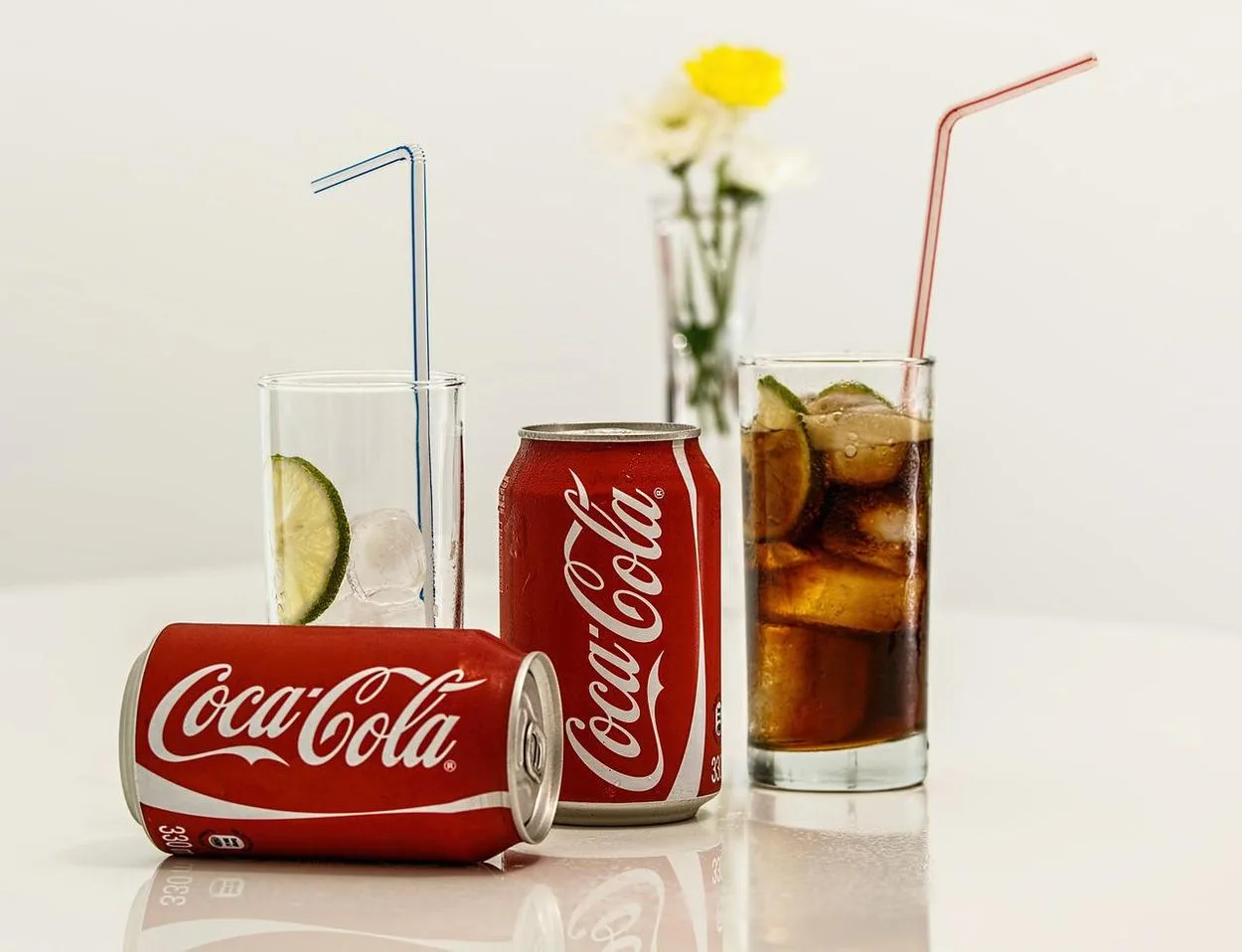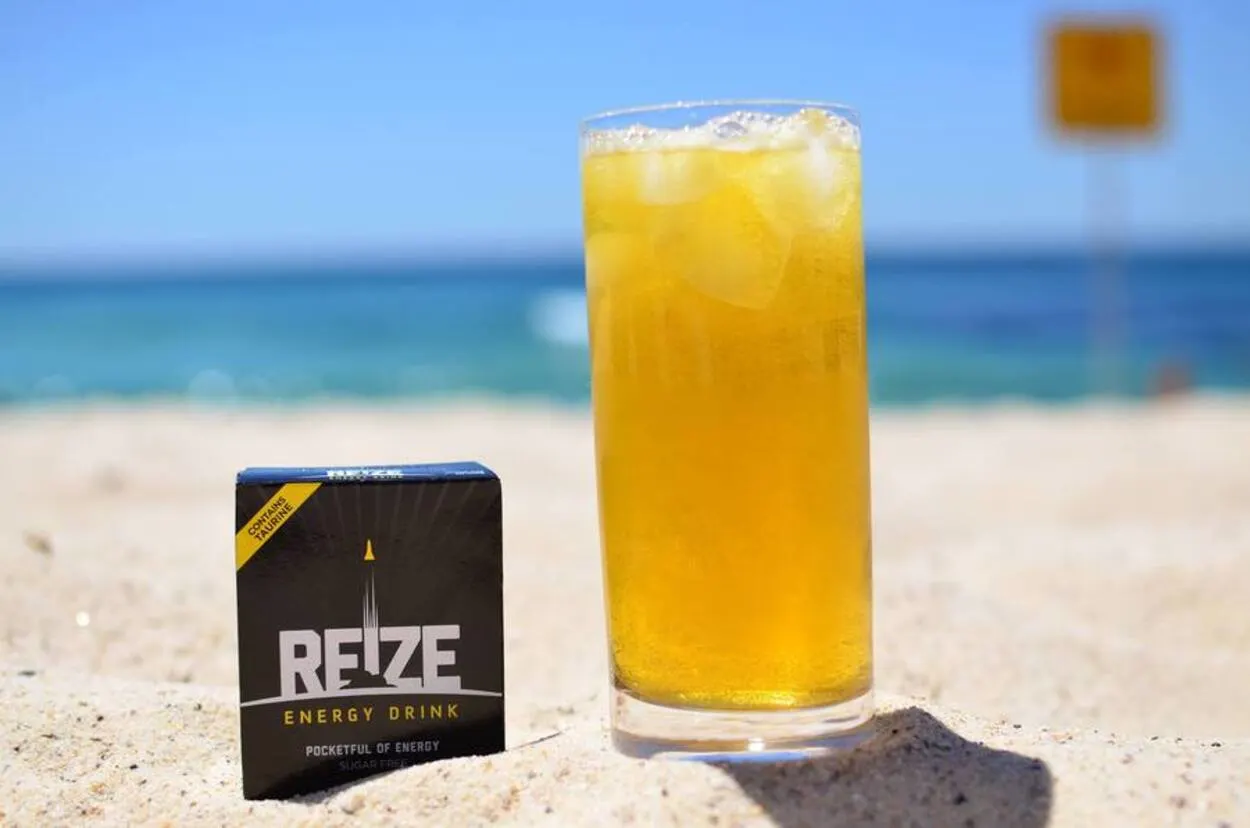Carbonated drinks are among the most popular beverages in the world, with sodas and energy drinks being the two most popular brands. Both contain caffeine, sugar, and other ingredients that many people believe help them stay energized while relieving their thirst.
So, how do the popular carbonated beverages Red Bull and Coke stack up to one another?
Red Bull has nearly three times the caffeine by volume of Coke but somewhat less sugar. And, while this is subjective, many individuals prefer the flavor of Coke over Red Bull, owing to its higher sugar level.
Now, if you want to learn more about Red Bull, keep reading and I’ll walk you through everything there is to know about Red Bull and Coke.
Red Bull Vs. Coke: Overall Comparison
The main difference between Red Bull and Coke is their caffeine content. Red Bull contains more caffeine than Coke.
A 355 ml (12 fl oz) can of Red Bull contains 102 mg of caffeine, while a 355 ml (12 fl oz) can of Coke contains 34 mg. Even the standard serving size of Red Bull, at 250 ml (8.45 fl oz), has 80 mg of caffeine, which is more than twice the caffeine amount of a typical Coke.
Caffeine has several possible negative consequences when consumed in excess, therefore it is critical to keep track of your intake. Caffeine overdose can cause insomnia, anxiety, and other nervous system problems.
While Coke has substantially less caffeine than Red Bull, more research is needed to determine whether it is safer. Because it contains less caffeine than Red Bull, it does not entail fewer hazards. Keep in mind that Coke has higher sugar content.
Red Bull has a somewhat lower sugar content per liter than Coke. A 355 ml (12 fl oz) can of Coke contains 39 grams (1.32 oz) of sugar, whereas the same-sized Red Bull contains 37 grams (1.25 oz).
Not to forget the fact that Red Bull actually includes a few vitamins (B3, B5, B6, B12) in its formula to help you stay healthful and nourished. Something a serving of coke lacks.
Nutrition Facts: Red Bull Vs. Coke
The nutrition facts of Red Bull and Coke have been given below in the table.
| Nutrition Facts | Red Bull (250 ml) | Coke (355 ml can) | Recommended Daily Amount |
| Energy | 110 calories | 140 calories | 2000-2400 |
| Carbohydrate | 28g | 42g | 300g |
| of which Sugar | 27g | 42g | 50g |
| Protein | <1g | 0g | 50g |
| Salt | 105mg | 140mg | 2400mg |
| Niacin | 22mg | – | 20mg |
| Pantothenic Acid | 5.05mg | – | 10mg |
| Vitamin B6 | 5.05mg | – | 2mg |
| Vitamin B12 | 120% | – | 6mcg |
Calorie Content
Red Bull includes 110 calories per serving, whereas Coke includes 160 calories per serving.
Calories are the most basic sort of energy that your body consumes. The amount of energy you accumulate is proportional to the number of calories you consume. As a result, more calories often equal greater energy.
Both beverages include a moderate amount of calories and provide you with the necessary amount of energy you will need.
The calorie content of coke is a bit higher than Red Bull but compared to the recommended calorie intake number set by this research, it’s not going to pose any danger to your health as long as you consume it in moderation and avoid drinking multiple cans in a single day.
Carbohydrate Content
Red Bull includes 28g of carbohydrates, whereas a single serving of Coke includes 40g of carbohydrates per serving.
Carbohydrate-containing energy drinks typically provide long-lasting energy. Excess carbohydrate consumption, on the other hand, can lead to high blood sugar, diabetes, and a variety of other health problems.
Red Bull has a relatively low carbohydrate content. As a result, it may not have a significant impact on your overall health, but I cannot say the same with Coke. 40g of carbs is hard to burn off, and consuming multiple cans regularly will definitely increase the numbers on the weight scale.
Sugar Content
Red Bull includes 27g of sugar per serving, whereas a serving of Coke includes 42g of sugar per serving.
According to this study, men should take no more than 37.5 grams of sugar each day, while women should consume no more than 25 grams.
Too much sugar in your system is harmful, especially if it is added sugar. According to one study, increased consumption of added sugars is linked to type 2 diabetes, hastened aging, and teeth damage.
Some people choose artificial sweeteners because sugar can cause diabetes and other health problems. If you want to avoid added sugar entirely, there are sugar-free Red Bull and Coke choices.

Some sugar substitutes are known to have health hazards, and there is insufficient evidence to determine whether these are truly safer alternatives. So keep that in mind if you prefer these alternatives to natural sugar.
While Red Bull has less sugar than Coke, it is important to consider whether this is still a reasonable amount of sugar in comparison to other popular beverages.
Check out the sugar content of various sizes of Red Bull and Coke.
| Beverage | Size Of Can | Amount Of Sugar |
|---|---|---|
| Coca Cola | 250ml (8.5 fl oz) | 28 grams |
| Red Bull | 250ml (8.5 fl oz) | 27 grams |
| Coca Cola | 355ml (12 fl oz) | 39 grams |
| Red Bull | 355ml (12 fl oz) | 37 grams |
| Coca Cola | 473ml (16 fl oz) | 52 grams |
| Red Bull | 473ml (16 fl oz) | 45 grams |
Ingredients of Red Bull Vs. Coke
The ingredients of Red Bull and Coke have been provided below.
| Red Bull | Coke |
| Water | Carbonated Water |
| Sucrose | Sugar |
| Glucose | Phosphoric Acid |
| Citric Acid | Caramel |
| Carbon Dioxide | Caffeine |
| Taurine | – |
| Sodium Citrate | – |
| Caffeine | – |
| Vitamins | – |
| Flavorings | – |
| Artificial colors | – |
Caffeine Content
One can of Red Bull includes 80mg of caffeine, whereas a single serving of Coke includes 34mg of caffeine.
In comparison, an average cup of coffee provides roughly 95mg of caffeine per serving, making Red Bull a suitable substitute for your morning coffee (provided you don’t mind the added sugar, of course). In addition, Coke has only 34mg of caffeine, which is far too little in my opinion.
Caffeine has several possible negative consequences when excessively consumed, therefore it is critical to keep track of your intake. Caffeine overdose can cause insomnia, anxiety, and other nervous system problems.
While Coke has substantially less caffeine than Red Bull, more research is needed to determine whether it is safer. Because it contains less caffeine than Red Bull, it does not entail fewer hazards. Keep in mind that Coke has higher sugar content.
According to this study, you should have no more than 400mg of caffeine every day.
With this in mind, 80mg of caffeine per serving looks to be a healthy quantity, in a contrast to other potent energy drinks that contain up to 300mg of caffeine per serving.
I prefer 50mg to 100mg of caffeine per serving, which I believe is just enough to give me a great boost without giving me a headache afterward.
So, a can of Red Bull is ideal for me, but depending on your caffeine metabolism, you may need something stronger for the effects of your usual energy drink to kick in.
The chart below explains how much caffeine is present in various usual serving sizes of each beverage.
| Type Of Beverage | Size Of Can | Amount Of Caffeine |
| Coca Cola | 250ml (8.45 fl oz) | 24.3 mg |
| Red Bull | 250ml (8.45 fl oz) | 80 mg |
| Coca Cola | 355ml (12 fl oz) | 34 mg |
| Red Bull | 355ml (12 fl oz) | 113.529 mg |
| Coca Cola | 473ml (16 fl oz) | 65 mg |
| Red Bull | 473ml (16 fl oz) | 160 mg |
So, what are the consequences of caffeine, and are there alternatives? Some of the disadvantages of excessive caffeine use include:
- Feeling shaky
- Increased heart rate
- Nervousness
- Inability to sleep
- Dizziness
- Stomachache leading to either diarrhea or constipation
- Increased frequency of urination
These are the reasons why it is critical not to consume too much caffeine, especially on a daily basis.
The good news is that there are caffeine-free versions available from Coke and Red Bull. This is fantastic news for fans of either brand who wish to avoid taking too much caffeine.
I have added a youtube video showing what caffeine does to your body.
Flavors: Red Bull Vs. Coke
The flavors of Red Bull and Coke have been given below.
Red Bull Flavors
The flavors of Red Bull have been given below.
- Original (amber)
- Sugar-free (reduced calories)
- Total Zero (no calories)
- Red (cranberry)
- Ruby/Red (grapefruit)
- Blue (blueberry)
- Yellow/Tropical (tropical fruit)
- Orange/Mandarin (mandarin/orange)
- Green/Kiwi (kiwi-apple)
- White/Coconut (coconut berry/acai)
- Peach (peach-nectarine)
- Pear Sugar-Free (pear)
- Lime Sugar-Free (lime)
- Purple/Acai Sugar-Free (açai)
- Purple/Acai (acai berry)
- Lime (lime-lemon)
- Orange Sugar-free (orange)
- Yellow/Tropical Sugar-free (tropical)
- Winter Edition (plum-cinnamon)
Flavors of Coke
Coke comes in three distinct flavors.
- The original
- Zero
- Diet
So the number of coke flavors pales in comparison to the sheer magnitude of available Red Bull flavors, however many people, including me, prefer the taste of Coke, why do you think that is?.
Taste Showdown: Red Bull Vs. Coke
The flavor is an important feature to consider while choosing a soft drink. These considerations raise the question of which beverage tastes the greatest. Is it Coke or Red Bull?

That is up to the consumer. Coke was the most popular soft drink on the planet for many years. It is a time-honored favorite that evokes nostalgia and delight in millions of people throughout the world.
Red Bull, on the other hand, has grown in popularity over the last two decades, transitioning from a niche product to a more mainstream one. They are wonderfully tasty on their own, but they have also become classic cocktail mixers.
Personally, I prefer the refreshing nostalgic taste of Coke over the somewhat bitter taste many flavors of Red Bull tend to give. But that’s just me, Try these two trendy drinks for yourself to see which one suits you the best!.
Alternatives to Red Bull and Coke
Various energy drinks on the market would provide a stronger boost than Coke. You might be interested in the following powdered energy drinks:
You could also try the following canned energy drinks:
REIZE (Personal Favorite)
While Red Bull and Coke might give your body a much-needed boost, certain of their ingredients may cause health problems. So, if you’re seeking an energy drink that can help you feel refreshed while also providing critical advantages without causing any adverse effects, REIZE is the drink for you.
REIZE is a powdered energy drink that can help you get through your day. It assists you in managing your body and providing your body with the energy it requires for the day. It’s a sugar-free energy drink with a reasonable 50mg of caffeine and only 11 calories. It’s light and simple to use.
Aside from that, REIZE contains a clever combination of taurine, ginseng extract, and B vitamins. It aids in the absorption of nutrients by the body.

REIZE is also adaptable and practical. You can drink this beverage whenever and wherever you want. Aside from that, it pairs well with a variety of beverages. You can blend it with any drink to elevate your standard cocktails.
Best of all, you can have REIZE shipped right to your door for under $1 for each drink which is an incredible value for the highest quality available.
Conclusion
- Red Bull and Coke are two of the world’s most popular non-alcoholic beverages. Both are noteworthy for their flavor and the capacity of their ingredients, which include sugar and caffeine, to wake people up.
- Red Bull has more caffeine than Coke. Contrary to popular assumption, it is not excessive amounts that should be concerned. The only danger arises when people consume too many cans at once.
- When deciding between Red Bull and Coke, it is always best to be aware of your health limits and sensitivity to sugar or caffeine.
- However, if you are not so convinced, you can try REIZE which has the following health benefits.
- Provides energy
- Tastes delicious
- Doesn’t contribute to weight gain
Click here to view the Visual Story Version of this Article.

